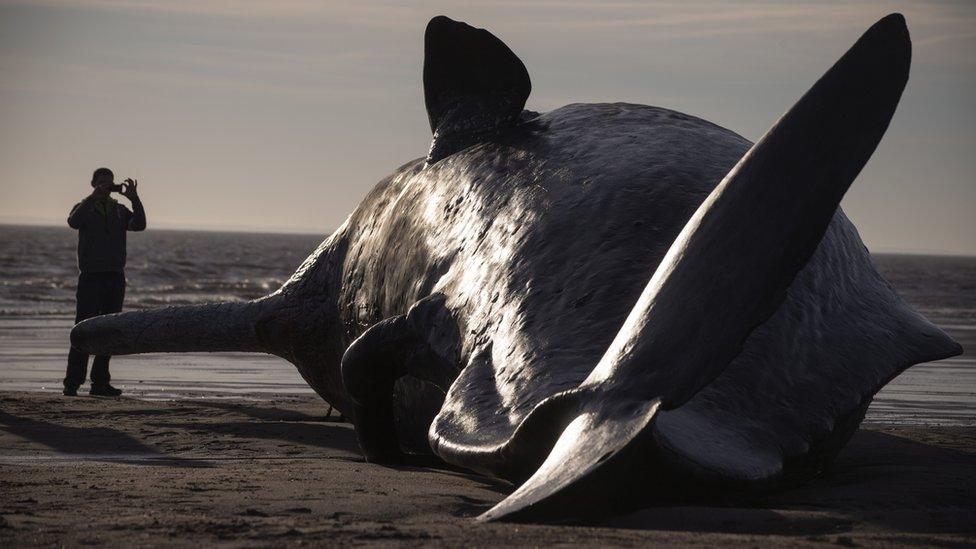East coast sperm whales stranding investigation continues
- Published
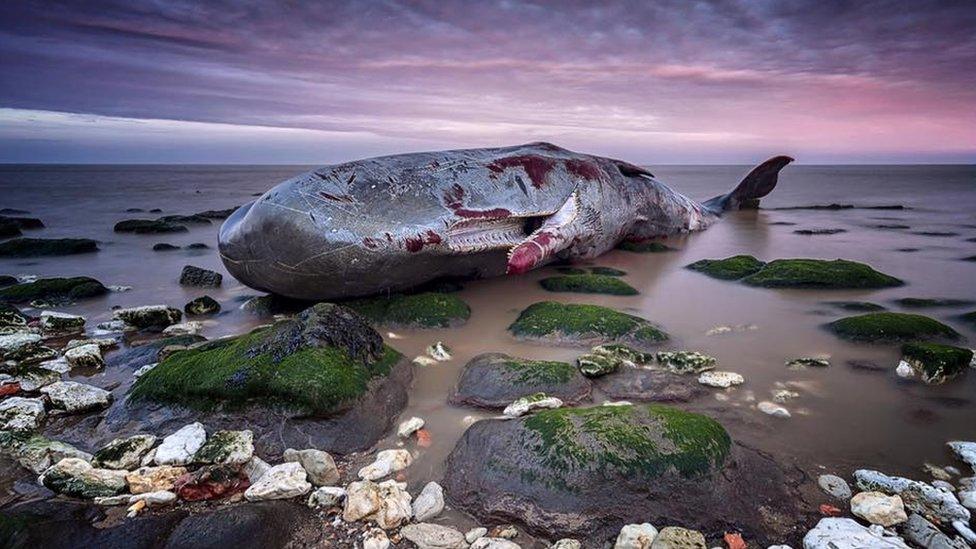
Six whales washed up in Norfolk and Lincolnshire in January and February
Scientists are still working to establish the cause of death of six sperm whales that washed up on east coast beaches earlier this year.
Two whales washed up in Hunstanton, Norfolk and four near Skegness in Lincolnshire in January and February.
Scientists from the Cetacean Strandings Investigation Programme, external are involved in writing a report on the deaths, which will be published later this year.
There were not "significant levels" of plastic inside the whales, they added.
The Daily Mail, external reported German experts had found 13 dead whales' stomachs and intestines were "full of plastic", and the animals had died from cardiac and circulatory failure.
Rob Deaville, from the Cetacean Strandings Investigation Programme (CSIP), said examinations on the Norfolk and Lincolnshire whales had not found much plastic at all.
"We've been examining cetacean strandings for 25 years, and finding animals that have died from swallowing plastic is highly unusual," he said.
"Finding it is one thing, but we have to determine and show it had a pathological impact on the animal and the cause of its death. None of the recent strandings had evidence of that."
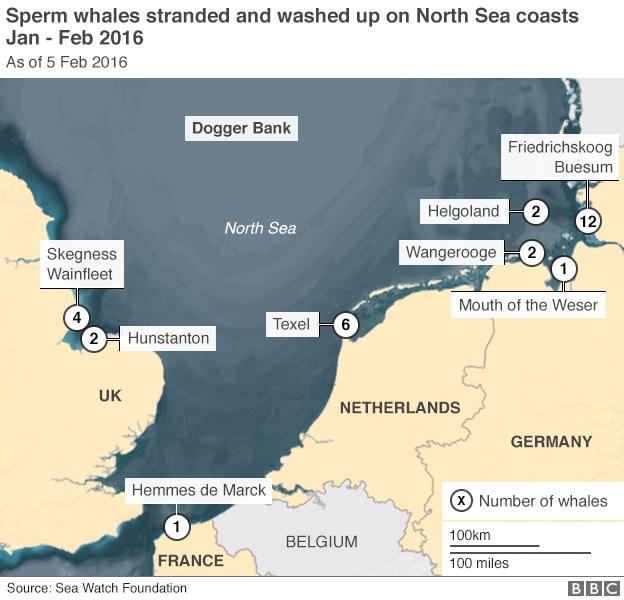
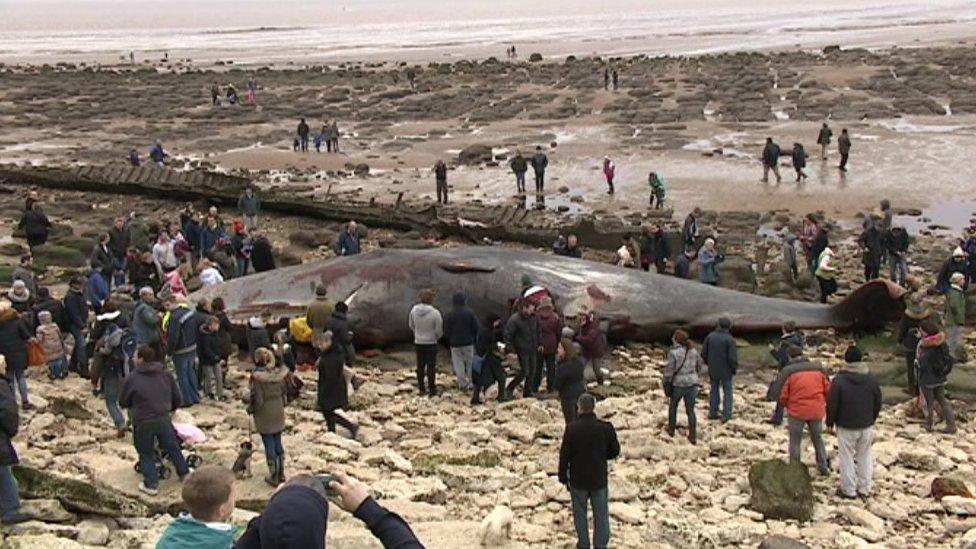
Crowds gathered at the site of one of the strandings in Hunstanton
In February, director of the Sea Watch Foundation, Dr Peter Evans, said the deaths of 30 sperm whales in the North Sea were probably due to them straying into shallow waters while hunting squid.
"The animals which were first stranded in Holland had quite a lot of a particular species of squid in their stomachs, which they can catch up in the Norwegian Deep."
He said they "got into danger" after heading south, possibly following shoals of the squid.
Mr Deaville said his team had been working with partners in Europe during the course of investigating the deaths.
He said the CSIP was working towards producing reports and papers on the strandings, and there would be "one or more" papers looking at the wider European context.
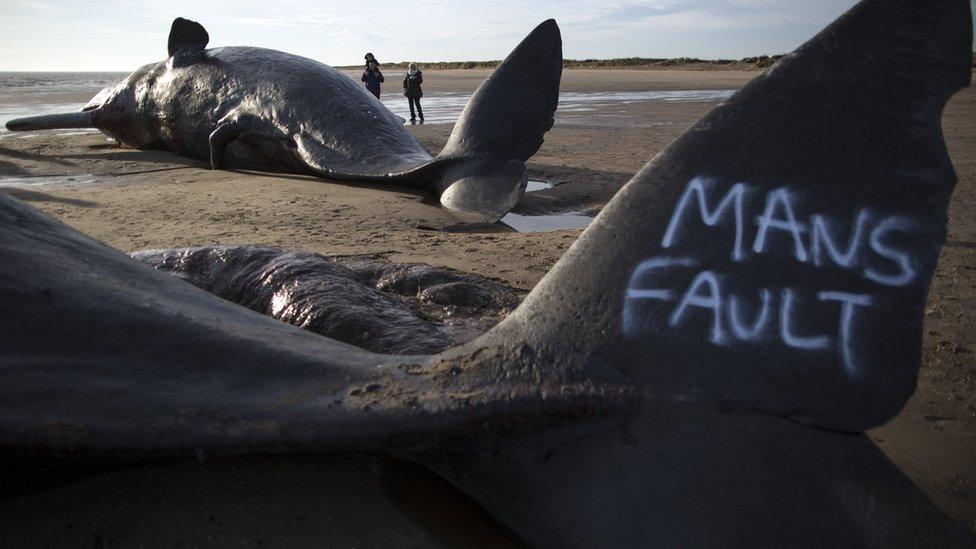
Some of the stranded whales in Lincolnshire had graffiti put on them
- Published8 February 2016
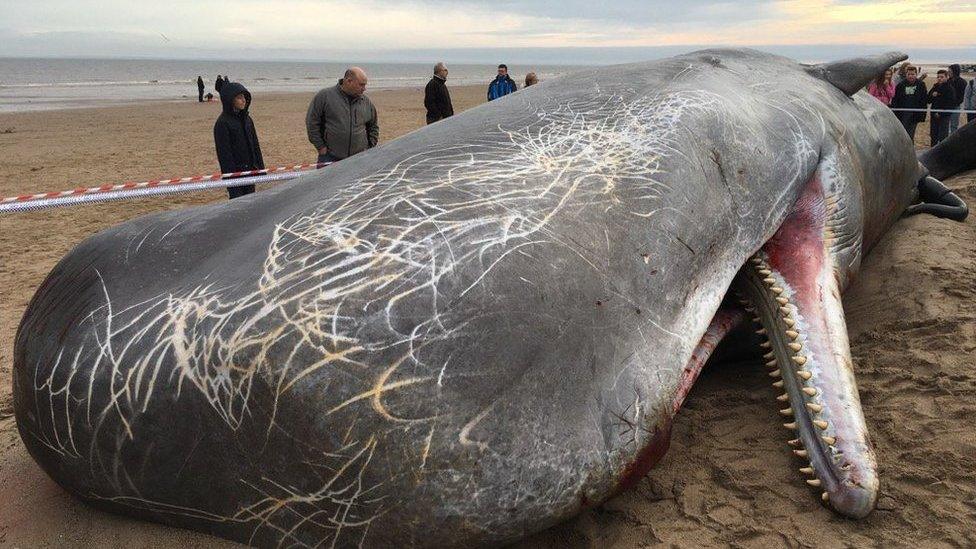
- Published3 February 2016
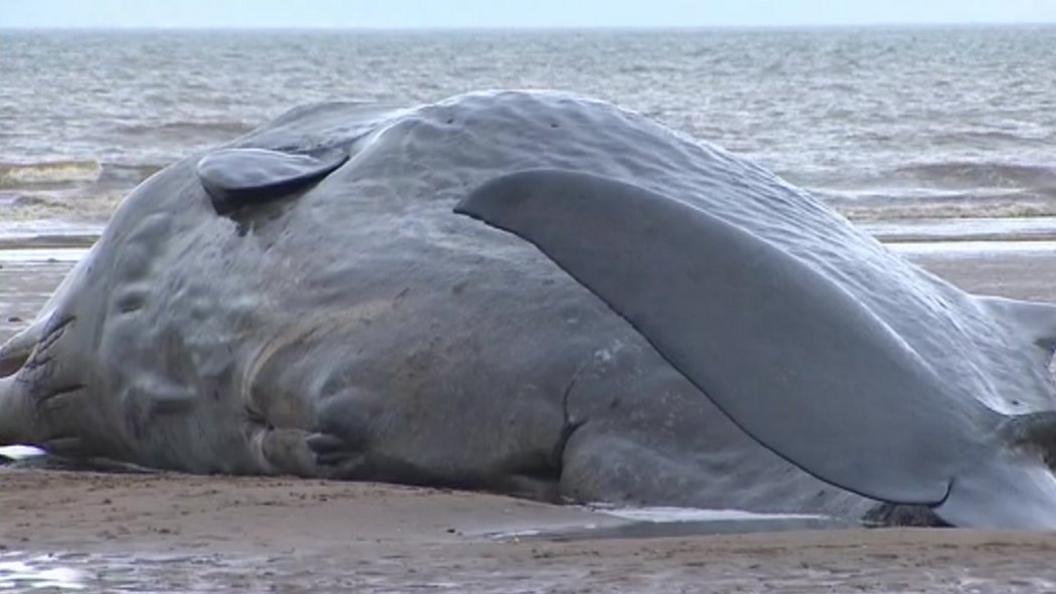
- Published26 January 2016
